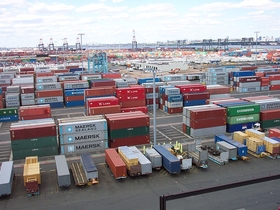Country of origin is always an important consideration for importers. It matters for special programs like NAFTA and GSP, for trade remedies like antidumping cases, and for sanctions considerations against imports from countries like Cuba and North Korea. However, with the imposition of Section 232 and Section 301 duties, origin has become even more important than it already was.
For Customs origin decisions related to the marking on imported goods (not subject to AD/CVD, 232, 301, NAFTA, etc.) Customs continues to use the traditional name, character, and use test. This is called the “substantial transformation” test, but that is also the name used for similar tests. Under the traditional Customs test, an article that undergoes a change in name, character, and use by reason of manufacturing in a country becomes a good of that country.
At the same time, when asked to make country of origin determinations to determine whether imported goods are subject to Section 301 duties against Chinese goods, Customs has a growing body of rulings using “substantial transformation” somewhat differently. For instance, in H301619 (November 6, 2018) Customs evaluated the origin of electric motors assembled in Mexico from three Chinese subcomponents. First, Customs clarified that meeting the NAFTA origin rule was not sufficient for Section 301 purposes. Second, Customs decided that for Section 301 purposes the components from China were not substantially transformed in Mexico because “the foreign subassemblies had a pre-determined end-use and did not undergo a change in use due to the assembly process in Mexico.” This conclusion was made notwithstanding the fact that none of the subassemblies were a motor prior to assembly. While it is still possible to meet the test used for 301 (see, for instance, N302544 (February 28, 2019)), the third country processing requires careful thought and planning to ensure it will not be subject to very high Section 301 duties.
Unlike Customs, Commerce makes country of origin determinations only in the context of antidumping and countervailing duty case administration, and looks to "class[es] or kind[s] of foreign merchandise" exported from a particular country, rather than from a particular producer or exporter. Commerce has also looked to whether the product has been "substantially transformed" to determine country of origin. However, even though the substantial transformation language appears to originate from Customs' origin determinations, Commerce has consistently insisted that it is not bound by Customs because it needs to address concerns about potential circumvention of AD/CVD Orders. In practice, the precise factors Commerce has considered when applying the substantial transformation test have varied over the years.
Prior to 2000, Commerce's application of the substantial transformation test was at least facially similar to Customs, focusing on whether there was a change in the character and use of the essential component of the product as a result of the production process in the subject or third country. Beginning in the early 2000s, Commerce gradually moved away from change in character and use and instead began to evaluate whether the processing resulted in an article of a different class or kind. Under this standard it became possible for Commerce to claim that a change in class or kind was not necessarily affected by a change in character or use, and additional factors, resembling those listed in the U.S. anticircumvention statute, could now be considered. In the late 2000s Commerce shifted its approach to country of origin determinations once again, this time moving away from looking predominantly to changes in class or kind and instead examining the "totality of circumstances," which now included renewed consideration, among other factors, of character and use.
However, the Court of Appeals for the Federal Circuit recently expanded on the appropriate analysis for determining AD/CVD origin. In Bell Supply Co. the court ruled that a substantial transformation occurs where, “’as a result of manufacturing or processing steps…, the product loses its identity and is transformed into a new product having a new name, character and use’”, looking to such factors as the class or kind of merchandise; the nature and sophistication of processing in the country of exportation; the product properties, essential component of the merchandise, and intended end-use; the cost of production / value added; and level of investment.
The Bell Supply court further found that even if the product did undergo a substantial transformation under this test, it was still necessary to examine it under the anticircumvention statute to determine whether it would be subject to an antidumping or countervailing duty case. 19 U.S.C. 1677j(b) is the anticircumvention statute and applies to “merchandise imported into the United States [that] is of the same class or kind as any merchandise produced in a foreign country that is the subject of an AD/CVD Order, but is assembled or completed in a third country not subject to the order.” To include such merchandise within the scope of an order, Commerce must determine that: “the process of assembly or completion in the foreign country…is minor or insignificant”; the value added in the country subject to the AD/CVD Order is a significant portion of the total value of the merchandise, and “action is appropriate under this paragraph to prevent evasion of such order or finding.”
The Bell Supply decision clarified the analysis of goods processed in third countries, but also set forth relatively stringent tests. Companies trying to manage the application of an AD/CVD order to goods they import must be extremely mindful of both the substantial transformation and anti-circumvention tests when creating their processes. Failure to do so may mean that substantial resources are used in creating a third country process without actually avoiding AD/CVD. In addition, because these standards are still evolving, companies must be especially mindful in these situations.
As is clear from the discussion above, country of origin has become an increasingly complex and important determination. With our decades of experience advising clients on the trade laws, Barnes, Richardson & Colburn attorneys are able to assist your company navigate this important area of law. Contact one of our attorneys here.




